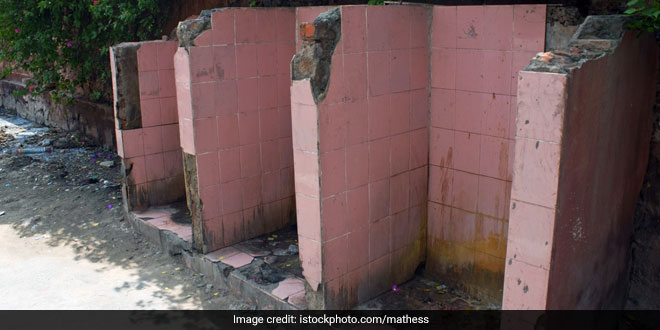New Delhi: With India preparing for year-long celebrations to mark Mahatma Gandhi’s 150th birth anniversary on Tuesday, a new analysis by the Centre for Science and Environment on Monday called for a drastic reality check about the nation’s impending Open Defecation Free (ODF) status. As per the government, India will lay claim to being an ODF nation by February 2019.
Under the Swachh Bharat Abhiyan, 76 per cent of India’s villages have been declared ODF. Around 83.8 million toilets have been built. “This means the infamous distinction of having the world’s largest number of people going out to defecate in the open is all set to be history. This switch-over, involving a generation-old behaviour of some 600 million people, is no mean feat,” CSE Director General Sunita Narain said in a statement.
But building toilets is only the first and perhaps the easiest step towards attaining a “clean India” status.
Also Read: Puducherry Achieves Swachh Goal, Declared Open Defecation Free
“It cannot be seen as the ultimate yardstick of success. What happens to the immense amounts of solid and liquid waste that these millions of new toilets would generate? If human excreta is not handled carefully, safely disposed of or reused, it will add to our health burden and negate all the work done to build the toilets,” she said.
The CSE analysis along with Down To Earth magazine gives a taste of exactly how monumental the problem would be – 1,00,000 tons of excreta every day produced by 720 million people using 144 million household toilets – just to give a sense of scale, more than 5,200 trucks would be needed every day to transport this amount of excreta. The CSE has based this estimate on the standard calculation that on an average, an individual produces 128 gram of excreta every day.
CSE’s Programme Manager with rural water-waste management Sushmita Sengupta said: “This could turn out to be a far bigger problem than that of open defecation. If not managed properly, the mind-boggling amounts of waste that these toilets will spew forth close to people’s homes can severely contaminate the land and water sources.”
Also Read: Punjab Is The Fourth State To Completely Go ODF
What compounds the problem is the manner in which the entire process of making villages ODF has been carried out. The analysis notes major gaps in the process. To declare India’s villages ODF, the Census 2011 involved 2.7 million officials, ostensibly working in collaboration
with 3.6 million village residents. However, the rush to achieve targets has led to false claims. The analysis quotes the reports of the Comptroller and Auditor General of India on Gujarat and Uttarakhand, which have exposed cases of fudging of data.
NDTV – Dettol Banega Swachh India campaign lends support to the Government of India’s Swachh Bharat Mission (SBM). Helmed by Campaign Ambassador Amitabh Bachchan, the campaign aims to spread awareness about hygiene and sanitation, the importance of building toilets and making India open defecation free (ODF) by October 2019, a target set by Prime Minister Narendra Modi, when he launched Swachh Bharat Abhiyan in 2014. Over the years, the campaign has widened its scope to cover issues like air pollution, waste management, plastic ban, manual scavenging and menstrual hygiene. The campaign has also focused extensively on marine pollution, clean Ganga Project and rejuvenation of Yamuna, two of India’s major river bodies.
















